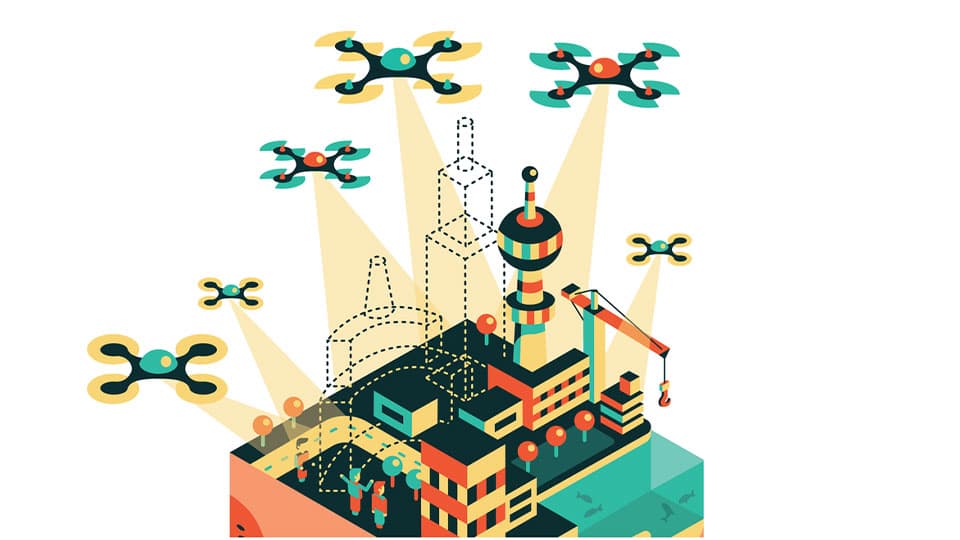Flying High – Shaping the Future of Drones in UK Cities

Summary
There have been different and competing views of the future of drones in UK cities, and the country as a whole. Positive visions of smart cities, solving congestion, streamlined services with negative perspectives of increased surveillance, nuisance and noise have been cited.
The Flying High project was conceived to address some of the challenges on this future. To better understand what drones’ place in our lives might be, to find out what challenges lie in store, to assess the benefits to cities and the people who live in them, and to start a much-needed conversation to build a shared view of this future.
The most important legacy of Flying High, though, is not in the project report has been the stimulus for shared objectives that have been developed and the future action that needs to follow.
Objectives of Flying High
Run by Challenge Works, in partnership with Innovate UK, Flying High was the first programme of its kind to convene city leaders, regulators, public services, businesses and industry around the future of drones in cities.
- Shape city plans on the future of drones in UK cities, exploring specific applications of drones within cities and hazardous environments.
- Identify and address key complexities such as technology, infrastructure, law, regulations, safety and privacy.
- Detail technical and economic plans that unlock market opportunity through regulatory testbeds, open innovation technology challenges and live, real-world demonstrations.
The first phase comprised a nine-month research and engagement process, working with five city-regions across the UK (Bradford, London, Preston, Southampton and the West Midlands) to develop visions for the future of drones and assess technical feasibility and economic and social impact of urban drone applications.
The outputs of this phase, which also included mapping the UK drone industry and exploring the systemic requirements for integrating drones in cities, are summarised in the Flying High Report.
Technical scope
The scope for the technical solutions covered by Flying High was extensive and involved working with City Councils, Mayors, Government Agencies, Emergency Response organisations National Air Traffic System, CAA, Industry and Academia.
Technical approach
The four key themes underlying Flying High were:
- Technology - Drone technology is advancing rapidly with the potential to perform critical services in everyday city life – from transporting urgent medical supplies to bridge inspection and repair.
- Cities and People - must be at the centre of shaping potential uses for drones and how they may integrate sustainably into communities.
- Potential Impact - Drone systems have the potential to advance cities’ social, economic, transport, environmental and innovation plans.
- Integration challenges - Drone systems must integrate sustainably and safely within cities and hazardous environments taking into account real-world conditions.
The AVRRC (Roy Kalawsky) at Loughborough University was the Technical Lead for London and other nominated experts. Rather than repeat what was undertaken it is best to read the project report because it contains significant information.
Research outputs
A substantial technical report was delivered by the project as a summary of the key things we’ve done, and the key facts exposed during the process of engaging with five UK cities, as well as national stakeholders and experts.
- The research outputs are available in an online comprehensive report
- Additional information can be found on Challenge Works website
Project consortium
This was an extensive consortium. The Technical Lead for London aspect was Professor Roy Kalawsky